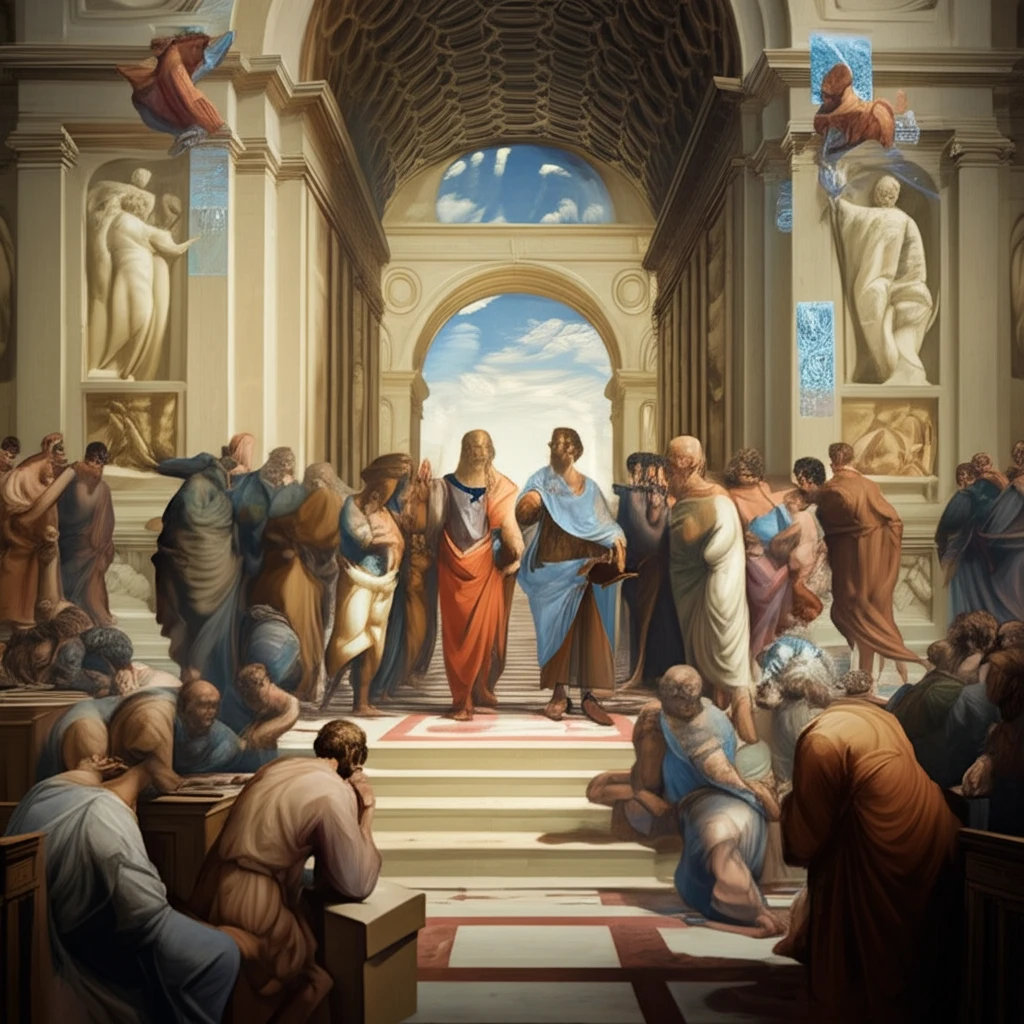
Unlocking Ancient Wisdom: How Greek Political Thought Shapes Today's World
"Explore the enduring relevance of ancient Greek political philosophy and its profound impact on modern democracies."
In the vast landscape of political philosophy, the ideas of ancient Greece stand as foundational pillars. Thinkers like Plato, Aristotle, and countless others grappled with fundamental questions of governance, justice, and the ideal society. Their insights, meticulously analyzed by scholars such as Paul Cartledge, continue to resonate in modern political discourse.
Cartledge, a renowned historian of ancient Greece, bridges the gap between historical analysis and philosophical inquiry. His work, particularly 'Political Thought in Ancient Greece,' examines the intricate relationship between theory and practice in the ancient world, offering valuable lessons for contemporary political thinkers and citizens alike.
This exploration will uncover how the core concepts debated by the Greeks – democracy, citizenship, and the role of law – still influence our understanding of politics today. By examining Cartledge's interpretations and drawing connections to current events, we gain a richer perspective on the challenges and opportunities facing modern democracies.
The Interdisciplinary Lens: Unveiling the Complexities of the Polis

Cartledge emphasizes the importance of an interdisciplinary approach to understanding ancient Greek political thought. It's not merely about dissecting philosophical treatises; it's about weaving together insights from history, political science, sociology, art, and literature to paint a comprehensive picture of the polis – the ancient Greek city-state.
- Democracy's Genesis: Tracing the evolution of democratic principles from their ancient roots to modern applications.
- Theories into Practice: Examining how Greek philosophical ideals were implemented (or not) in real-world political systems.
- Interdisciplinary Approach: Highlighting the need to integrate diverse fields like history, sociology, and literature for a comprehensive understanding.
- Enduring Relevance: Showcasing how ancient Greek ideas continue to inform contemporary political debates.
A Timeless Legacy: Learning from the Ancients
While 'Political Thought in Ancient Greece' may be concise, it serves as a potent reminder of the enduring relevance of ancient Greek political thought. By engaging with the ideas of the past, we can gain fresh perspectives on the challenges and opportunities facing our own societies. As we navigate the complexities of the 21st century, the wisdom of the ancients offers a valuable compass for charting a course towards a more just and equitable future.
